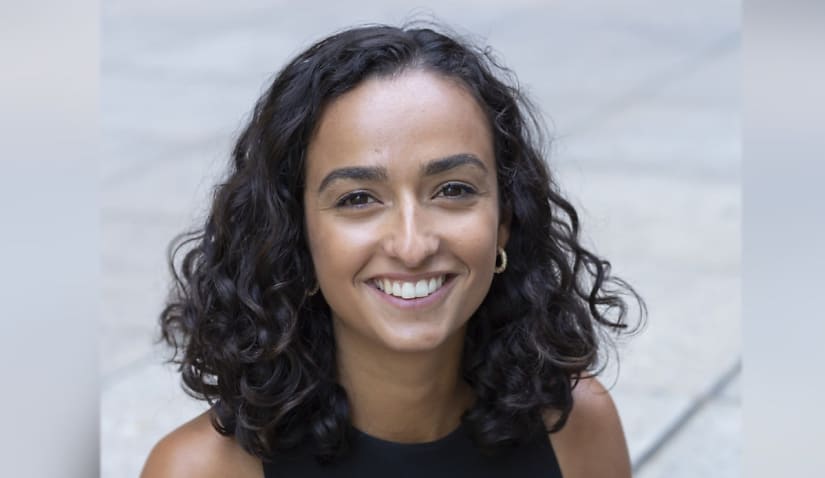In the lead-up to Australia’s first Treaty process, this law student and senior lawyer explained that the pathway to “true reconciliation” has never been clearer.

Karri Walker is a senior lawyer at the First Peoples’ Assembly of Victoria, working on securing ground-breaking reform through the nation’s first Treaty process. She’s also one of the recipients of the 2023 General Sir John Monash Foundation scholarship and will study a LLM at Columbia University.
“I am a proud Nyiyaparli Aboriginal woman whose family is from the East Pilbara region of Western Australia. I am incredibly proud to be an Aboriginal woman as I come from the oldest living culture in the world. Like many First Peoples, my family has experienced the injustice of being subject to colonial laws, rather than protected by law. However, I have witnessed the legal system’s powerful potential to seek redress and promote justice. This includes addressing the structural problems at the interface of First Peoples’ relations with the legal system,” she explained.
“Treaty offers the possibility to reset the relationship between First Peoples and the state. Treaty will accept the truth of First Peoples’ ownership of Country, recognise the historic and ongoing injustices against First Peoples and will empower First Peoples. Upon returning to Australia, I will have developed a far more nuanced understanding of rights-based frameworks. I intend to bring this knowledge back to the assembly to continue assisting assembly members to achieve Treaty.”
Through a master of laws, Ms Walker will analyse the “way the law has been used to empower disadvantaged communities and how this could be deployed in Australia”.
“It is my goal to use the law to pursue structural reform which gives First Peoples the power to make decisions on issues that affect the First Peoples community,” she said.
“Working as a lawyer to advance First Peoples’ rights is the most encompassing field of law. It comprises the study of constitutionalism, federalism, human rights, criminal, civil and administrative law. I recognise the need to build my generalist legal expertise to continue working alongside Victorian traditional owners to achieve Treaty. An LLM will provide me with a vital insight into how the law has been used to empower disadvantaged communities and how this could be deployed in Treaty negotiations.”
Upon completing her master’s degree, Ms Walker intends to continue working to assist First Peoples to agree to the Statewide Treaty — which she said has the potential to impact First Nations Peoples across the country.
“Next year, the First Peoples’ Assembly of Victoria will begin negotiating the Statewide Treaty, which will focus on institutional reform to government, to hand back decision-making power so First Peoples can make decisions on issues that affect our communities,” she explained.
“The assembly members have called for bold reforms as part of the Statewide Treaty. I will be working with assembly members to establish a First Peoples’ representative body, which has the power to make laws for First Peoples. This body has the capacity to create justice and equality for First Peoples in Australia as it will recognise First Peoples’ inherent right to self-governance.”
Australia is also at a pivotal time moving forward, according to Ms Walker, who said that opening up a broader conversation around First Nations issues is key to enacting positive change.
“Australia is at a pivotal time in settler-state relations with the federal government’s commitment to implement the Uluru Statement from the Heart. I believe that we are witnessing a shift and a genuine commitment to achieve self-determination for First Peoples. This commitment comes off the back of years of advocacy by the First Peoples community. The Voice and Treaty are exciting as they offer the possibility to change the way the state interacts with First Peoples. Treaty and the Voice provide the pathway to achieving true reconciliation,” she added.
“I believe that change to the legal profession begins within legal education. Law school is an incredibly important time as it shapes your interests and the type of lawyer that you will be. Legal education maintains the status quo and is biased as it fails to recognise Aboriginal law. As an Aboriginal student at Melbourne Law School, I wanted to open up a broader conversation around Aboriginal law and how the law has been used as a tool to perpetuate injustice.
“I advocated to establish the Indigenous student representative and was appointed to this role. During my term, my work focused on fostering greater awareness of the issues faced by First Peoples under the settler legal system and introducing a conversation around Aboriginal law.”

Lauren is the commercial content writer within Momentum Media’s professional services suite, including Lawyers Weekly, Accountants Daily and HR Leader, focusing primarily on commercial and client content, features and ebooks. Prior to joining Lawyers Weekly, she worked as a trade journalist for media and travel industry publications. Born in England, Lauren enjoys trying new bars and restaurants, attending music festivals and travelling.